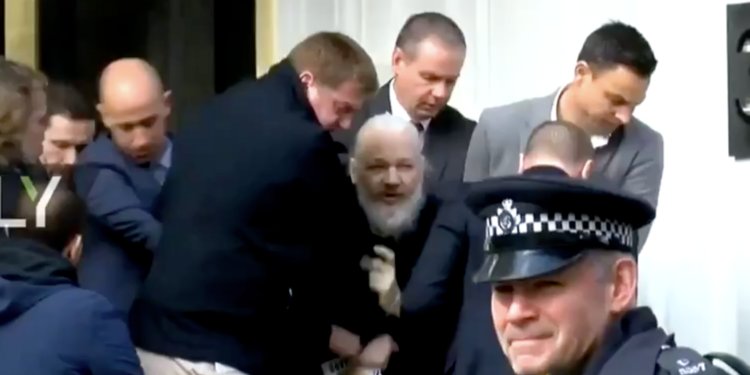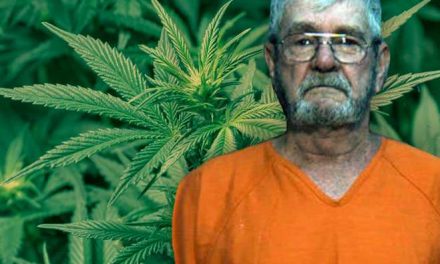WikiLeaks founder Julian Assange, 47, who had been living at the Ecuadorean Embassy in London since 2012, was arrested today by British authorities, on behalf of an American extradition warrant. The US charged Assange of “conspiring to hack a computer as part of the 2010 release of reams of secret American documents” according to an indictment that was unsealed today. (The only reason they were able to arrest him is because he was evicted by the Ecuadoreans.)
Click here to read the 2018 indictment.
Why was he expelled?
According to President Lenín Moreno of Ecuador, his country decided to stop sheltering Mr. Assange after “his repeated violations to international conventions and daily-life protocols.”1 Moreno also made mention of a recent release by WikiLeaks of information about the Vatican and used this as evidence to insinuate that Assange had continued to work with WikiLeaks in violating “the rule of nonintervention in the internal affairs of other states.”1
RELATED STORY:
Then there was the incident where the Ecuadorean government cut off his internet access because he had violated an agreement “to stop commenting on, or trying to influence, the politics of other countries.”1 He sued them claiming they were violating his rights.
Assange has had Ecuadorian citizenship since December 2017 and they were apparently preparing to appoint him to a diplomatic post in Russia however the British government made clear that if he left the embassy he would not have diplomatic immunity. (It’s also very likely that Ecuador’s relationship with the US and UK has suffered.)
Next for the WikiLeaks founder
Assange will have the right to contest his extradition to the US in British courts; most argue that their case is politically motivated rather than driven by legitimate legal concerns.
“In 2010 WikiLeaks released American files that documented the killing of civilians and journalists and the abuse of detainees by forces of the United States and other countries, airing officials’ unvarnished, often unflattering views of allies and of American actions.
An Army private, Bradley Manning — now known as Chelsea Manning — was convicted of leaking that collection of files and was sentenced to 35 years in prison. President Barack Obama commuted the sentence after Ms. Manning had served almost seven years.
American prosecutors said that in March 2010 Mr. Assange agreed to help Ms. Manning crack a password on a Defense Department computer to reach restricted classified government documents and communications. Ms. Manning had access to the computers as part of her job as an intelligence analyst. Prosecutors said there were communications that showed that Mr. Assange encouraged Ms. Manning to get more information.”1
Mr. Assange’s lawyer, Barry J. Pollack, has accused the United States of conducting what he said was “an unprecedented effort by the United States seeking to extradite a foreign journalist to face criminal charges for publishing truthful information.”1
RELATED STORY:
WikiLeaks, a journalistic organization that says it promotes the need for government transparency, has been responsible for a couple of notable front pages headlines over the years:1
- In 2013, Mr. Assange tried to help Edward J. Snowden (who is now living in exile in Russia) when a WikiLeaks activist accompanied Mr. Snowden to Moscow.
- American investigators linked the 2016 WikiLeaks disclosures to efforts by the Trump campaign to damage Ms. Clinton. Mr. Assange has made no secret of his intent to damage Mrs. Clinton, but he has insisted that he did not get the emails from Russia.
Mr. Assange also faces a charge in a British court of jumping bail back in 2012; the same year he took refuge in the embassy to avoid extradition to Sweden where he faced questions about sexual assault allegations. Assange claims those accusations against him are false and Sweden did rescind its arrest warrant in 2017 (however that the case has not been closed and could resume).
RELATED STORY:
Regardless of your politics, what do you think about Mr. Assange and his desire to expose corruption in government?
SOURCE:





![Zoo lion’s response to little girl’s kiss is proof animals don’t belong in captivity [Video]](https://healthnutnews.com/wp-content/uploads/2017/11/1280x720-VMM-440x264.jpg)






